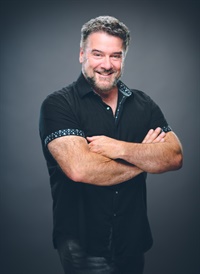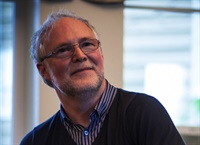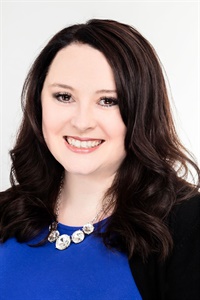IMPORTANT!
If you are a member, please log in to your account in order to receive the discounted member price. If you need to register another registrant, you cannot do so while signed in to your own account. All registrants must register on their own account, or you may call CalChiro at 916.648.2727 to get them registered. If you do not have a login, you can create one (at no charge) by clicking HERE and then registering, or by adding the non-member price to your cart, and following the prompts to create a login.
Chiropractic Nutrition the Brain Centric Way (Part 3)
- Average Rating:
- 15
- Topic Areas:
- General CE
- Categories:
- Webinar | Wellness
- Faculty:
- Rich Carr, BcID | Timothy Kieran O’Mahony, PhD | Dr. Elizabeth S Hoefer, DC, DCCJP
- Duration:
- 1 Hour
- Format:
- Audio and Video
- License:
- Never Expires.
Description
Brain-centric design is a neuroscience-based approach to learning that considers the way the brain processes information and responds to stimuli. In this hour we will review why nutrition is so important in the brain through the lens of brain-centric understanding to forever change the way learning happens and understanding is obtained.
-
Learn the importance of a healthy nutrition in maintaining overall health and well-being, specifically related to the brain and nervous system.
-
Understand nutritional sleep and the impact that diet and nutrition can have on the quality and duration of sleep, which is essential for optimal brain health and cognitive function.
-
Learn why the Mediterranean diet has been linked to numerous health benefits, including increased brain health and function.
-
Understand the vagus nerve and the crucial role it has in regulating a range of bodily functions, including digestion.
-
Understanding a healthy diet that supports the vagus nerve can help maintain optimal health and promote a healthy brain.
-
Learn how a healthy diet, other lifestyle factors such as stress reduction, regular exercise, and mindfulness practices can also support the health and function of the vagus nerve, promoting overall brain health and well-being.
The attendees will discuss what they learned and any areas where they need additional guidance during a 20-minute breakout session, before reporting back to the entire group for a 20-minute debriefing and Q and A.
Credits
Handouts
| Brain Health Shopping List (48 KB) | Available after Purchase | ||
| CalChiro Brain centric Nutrition PPT (6.5 MB) | Available after Purchase | ||
Speaker

Rich Carr, BcID Related Seminars and Products
Brain-Centric Design
Rich Carr is a thought partner and leader who is a creative and results-driven professional with robust experience orchestrating organizational growth and success through exceptional learning and development programs, communications design, project team management and engaging presentation skills live, online, and blended. Expertly adept at identifying and understanding critical growth areas, creating comprehensive curricula and messaging, and delivering streamlined facilitations (online, hybrid, in-person) that increase productivity and optimize performance. A proven leader, leveraging cognitive neuroscience to develop deep understanding of complex topics while achieving key outcomes and exceeding company and client expectations with every engagement.

Timothy Kieran O’Mahony, PhD Related Seminars and Products
Hue Learn
As learning leaders, I view teachers as powerful change agents for lifelong learning, whose role is to reach for every child’s potential regardless of society’s label, adverse childhood experiences, or underrepresentation. Mental models about how our brains function and how we learn informs and empowers that capacity for change agency. I study the intersection of teaching and neuroscience in a practical collaboration that introduces relevant neuro-knowledge, which profoundly impacts adolescent learning and potential. Areas of expertise include learning sciences, how people learn and neuroscience substrates to many of the daily challenges that impact learning (e.g., stress, attention, working memory, cognition, plasticity). The primary locus of intervention is with administrators and principals where change that is meaningful and practical has high impact for teachers, students, and parents—delicately balanced three-legged stool of learning. Using in situ institutes and professional learning community (PLC) meetings, I co-create with teachers a Mind, Brain, Education (MBE) learning environment that cross-fertilizes domain knowledge with neuro-scientific research applied to learning, developmental psychology for adolescent learning, and practical applications of learning sciences in the field. Translation of meaningful neuro-informed research delivers pedagogic models that offer nuanced insights to classroom management, content exposition, engagement, and unintended consequences like labeling and stratification by establishing novel and innovative approaches to educational environments—formal and informal. This work has meaningful application for people in all learning settings and situations they find themselves in the world, and is inclusive of historically underrepresented racial/ethnic groups, women, individuals with disabilities, veterans, LGBTQ community members and others—if you have a brain you are in our club. This work is accomplished through incorporating theories of action and methods that align neuroscience with how the brain works and how children learn (HPL), within existing systems and constraints and within a framework of adaptive expertise (AE).

Dr. Elizabeth S Hoefer, DC, DCCJP Related Seminars and Products
Well Connected Chiropractic
Elizabeth Hoefer has been a Blair Chiropractor for 14 years. As an advanced certified instructor for the Blair Upper Cervical Chiropractic Society, Dr. Hoefer has trained hundreds of students and doctors in the blair technique for over a decade. Her passion for upper cervical has led her to earn a Diplomate in CranioCervical Junction Procedures.
Reviews
| 5 |
|
| 4 |
|
| 3 |
|
| 2 |
|
| 1 |
|
